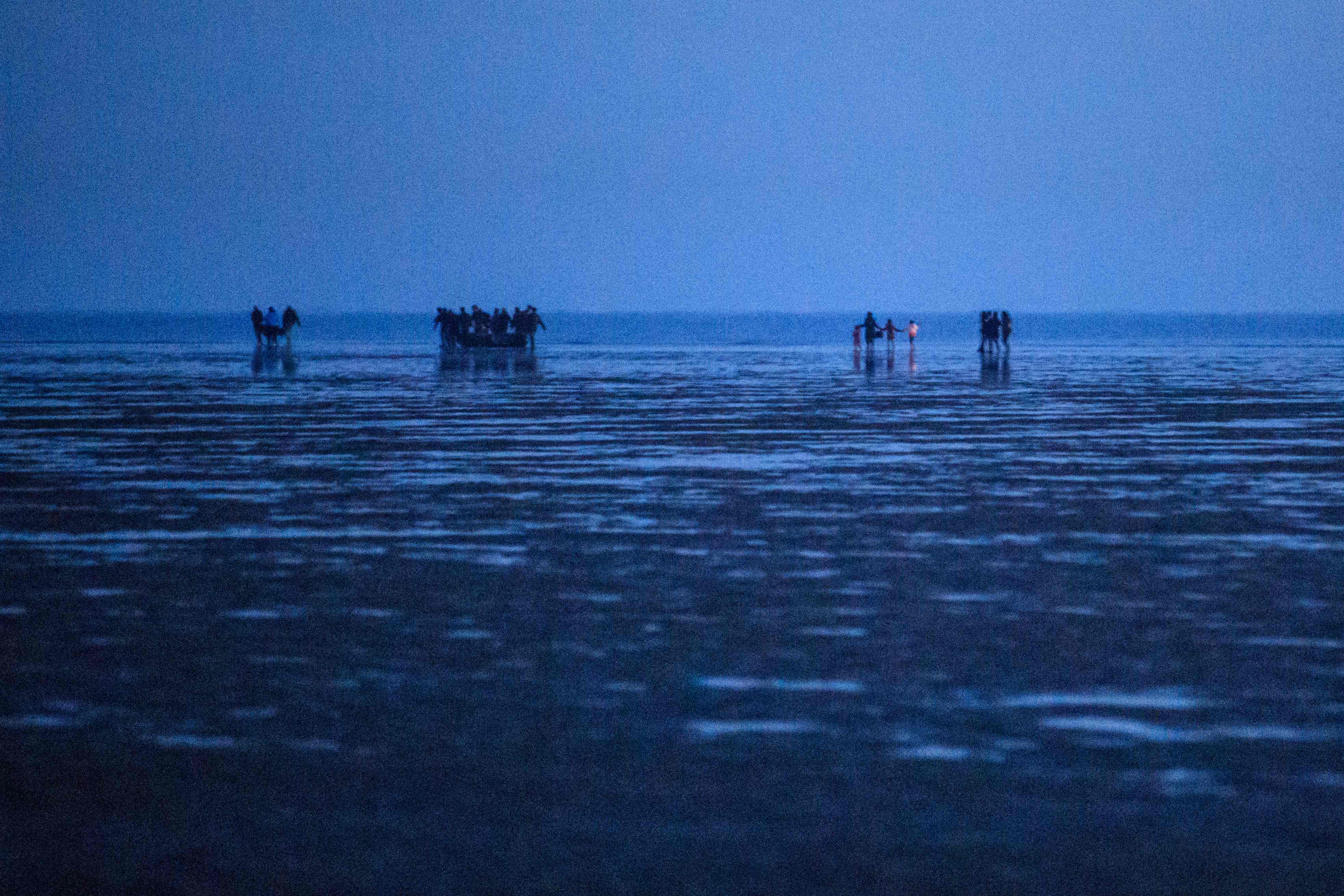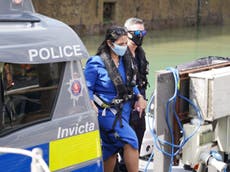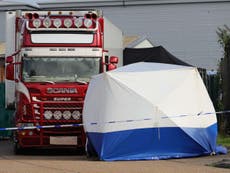How the British government made English Channel tragedy more likely
Ministers were warned a year ago that migrants would attempt more dangerous sea journeys unless they had safe alternatives, Lizzie Dearden writes

The deaths of a couple and two of their children in the worst known migrant boat disaster in the English Channel did not come as a surprise to those who have long warned of the consequences of the UK’s current asylum policies.
Instead, it can be seen as the grim consequence of a system that only allows migrants to apply for protection once on UK soil, but erects ever-higher barriers to reaching it.
Almost exactly a year ago, parliament’s Foreign Affairs Committee issued a stark warning to the government and urged it to expand legal pathways to claim asylum from outside Europe.
“In the absence of robust and accessible legal routes for seeking asylum in the UK, those with a claim are left with little choice but to make dangerous journeys by land and sea,” said a report drawn up while Priti Patel was among committee members.
It criticised the government’s focus on trying to increase security along the French coast and stop boats leaving, rather than improving the “dire conditions” migrants were trying to escape.
“Focusing on increasing border security without improving conditions in the region may have the counterproductive effect of forcing migrants to make desperate journeys across the Channel,” said the report released last November.
“A policy that focuses exclusively on closing borders will drive migrants to take more dangerous routes, and push them into the hands of criminal groups.”
The government has argued that it only resettles refugees from outside of Europe to avoid encouraging dangerous sea and land journeys, and providing business for people smugglers.
But the Foreign Affairs Committee suggested existing schemes were too small, and the main programme has been “paused” since March.
For the thousands of migrants who have already reached camps along the northern French coast, their options have become increasingly limited.
Before the coronavirus pandemic, many paid smugglers to be stowed on lorries bound for the UK via the Channel Tunnel or ships, while others hid on passenger ferries.
But international travel restrictions sparked a dramatic reduction in freight and passenger movement.
“We then saw a change in methodology to small boats,” National Crime Agency (NCA) deputy director Matthew Long explained last month.
“Some of this isn’t organised crime groups, some of this is the opportunistic purchases of inflatable dinghies from local shops … you’ve got layers of desperate individuals trying to get to the UK.”
The Home Office’s new clandestine Channel threat commander, Dan O’Mahoney, also admitted that British efforts to increase security at the Channel Tunnel and major ports had “displaced traffic away”.
The NCA is attempting to dismantle smuggling networks by stopping them obtaining boats and taking down online pages where they advertise their services.
More than 100 arrests have been made in recent months and a joint British and French unit continues to share intelligence on illicit activities.
Following Tuesday’s disaster, the prime minister vowed to “crack down on the ruthless criminal gangs who prey on vulnerable people by facilitating these dangerous journeys”.
But the efforts do nothing to tackle the factors driving demand for the smugglers’ services and without safe alternatives to reach the UK, their business will continue.




Join our commenting forum
Join thought-provoking conversations, follow other Independent readers and see their replies
Comments